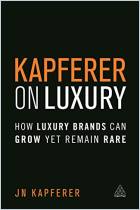
The New Strategic Brand Management
Creating And Sustaining Brand Equity Long Term
Recommendation
This is an authoritative, well-researched textbook on global branding. Surprisingly, it reads lighter than its considerable bulk because author Jean-Noël Kapferer uses vivid examples of real companies and products to make his points. His branding war stories make the material easier to digest, but only to a point. This remains a textbook, with more than 50 tables in 497 pages, so don’t expect to zip through it. However, it is an extremely useful single source about modern brand theory. If you are a casual marketer, as opposed to a serious student of branding, reap this book’s rewards by referring to specific chapters to solve problems. You will find thorough answers and illuminating examples from companies worldwide. Kapferer keeps branding in perspective and recognizes that brands are built on successful businesses. getAbstract finds this book genuinely valuable and strongly recommends it to anyone in marketing and corporate strategy development.
Summary
About the Author
Jean-Noël Kapferer is considered a world expert on brands. He is a professor of marketing strategy at HEC School of Management in France and holds a Ph.D. from Northwestern University. He is also an active consultant to many European, U.S. and Asian corporations and the author of six books on branding, advertising and communications, including Reinventing the Brand.


















Comment on this summary or Iniciar a Discussão